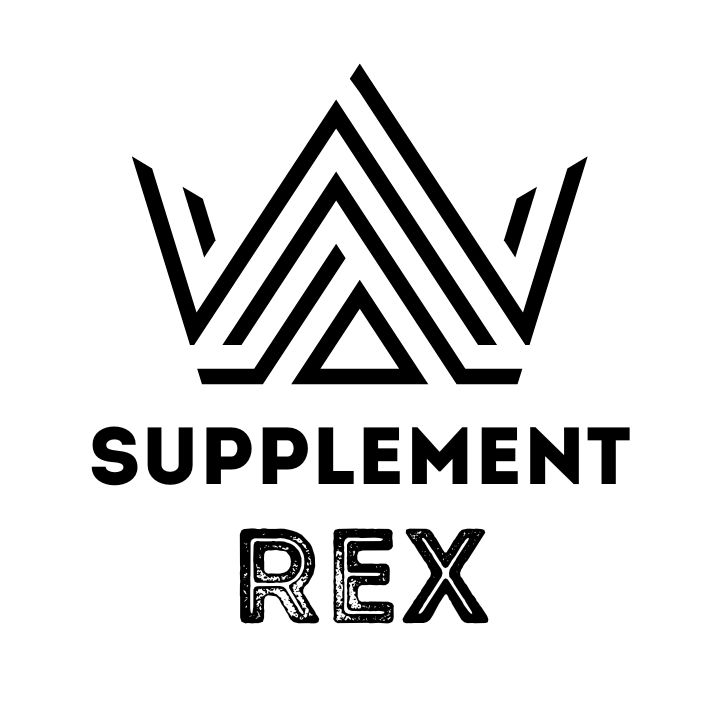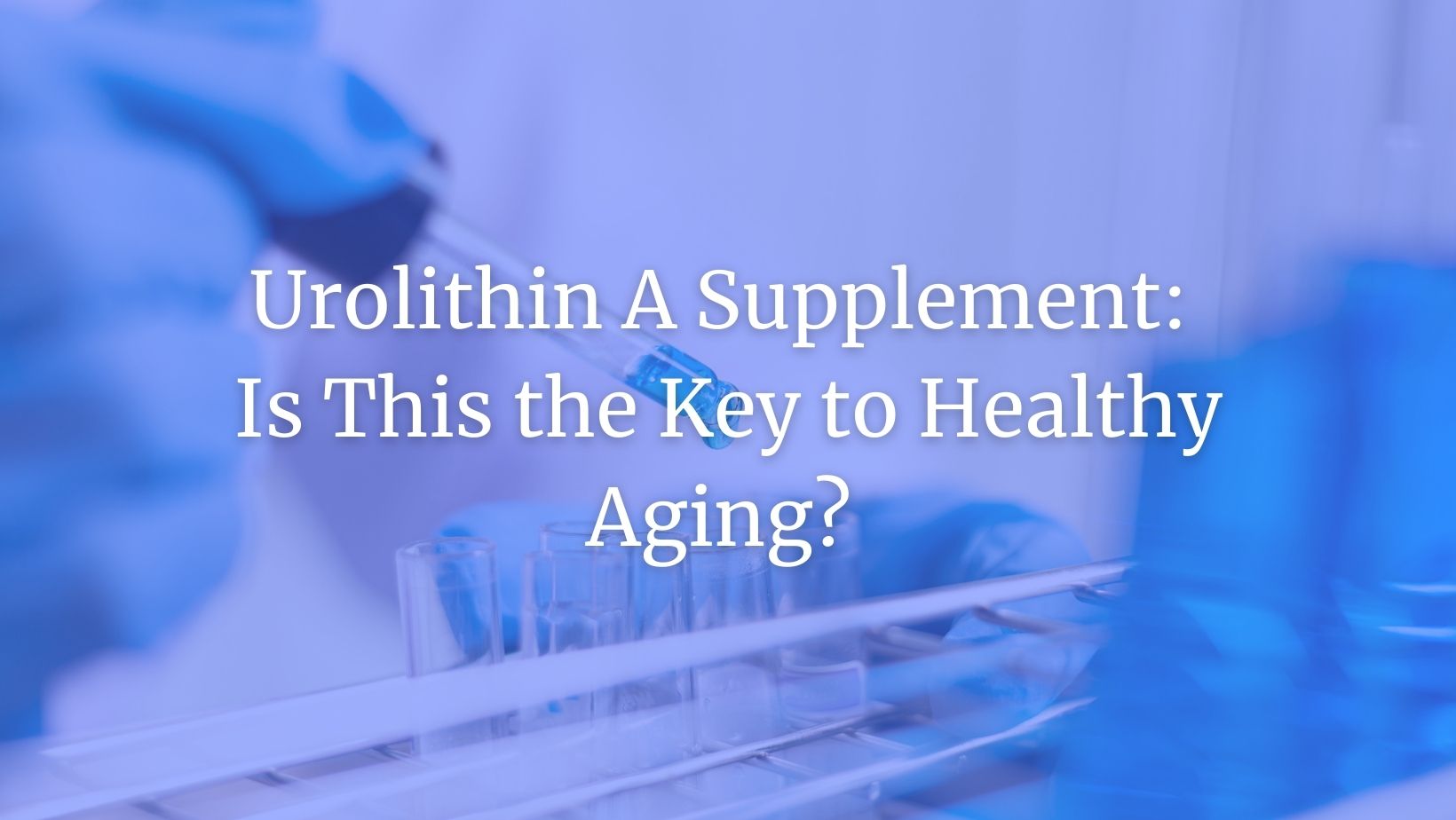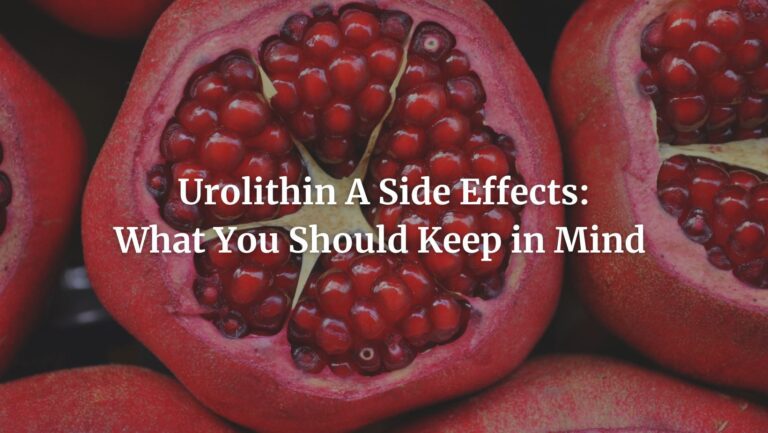Urolithin A Supplement: The Key to Healthy Aging & More Energy?
Ah, the age-old pursuit of the Fountain of Youth. If I had a dime for every time I daydreamed about discovering that magical elixir that promises eternal youth, I’d probably have enough to fund my own research lab by now!
Obviously, I have to start with a reality check. No, we have not found the fountain of youth, yet. But, aging research has made giant leaps in the past couple of years. So, today we do have some exciting new options – and I’m here to tell you about Urolithin A, one of the lesser-known compounds with big potential.
Urolithin A might not be a household name (yet!), but it’s been quietly making waves in the scientific community. Found naturally in pomegranates, berries, and a few other fruits, this compound has caught the attention of researchers and health enthusiasts alike. And for a good reason!
In this article, we’ll dive deep into the world of Urolithin A. We’ll explore its origins, the science behind its potential benefits, and how it might just be the key to unlocking better exercise performance, energy boosting, and yes, even healthier aging. So, if you’re on a quest to live a healthier life (and let’s be honest, who isn’t?), stick around. This might just be the information you’ve been waiting for.
Psst! Looking for even more healthy aging supplements? We recently did a piece on the NMN supplement, another promising compound for you to explore.
What Is Urolithin A (& How Can the Supplement Help You)?
Urolithin A is a metabolite that’s produced when our gut bacteria break down ellagitannins, compounds found in certain fruits like pomegranates, berries, and nuts. Think of it as nature’s way of gifting us with a beneficial compound, all thanks to the symbiotic relationship we share with our gut buddies.
A review titled “Benefits of polyphenols on gut microbiota and implications in human health” highlights the crucial role our gut microbiota plays in modulating the production and activity of phenolic metabolites, including Urolithin A. The research suggests that the health-promoting properties of dietary polyphenols, like those found in pomegranates, are greatly influenced by their interaction with our gut microbiota.
In simpler terms? The foods we eat, combined with the magic of our gut bacteria, produce compounds like Urolithin A that can potentially boost our health in various ways.
And, there is more, too. Phenolics also influence our gut (just as our gut influences, well, the phenolics we have available). If you want to dive deeper into this topic, the article “Interaction between Phenolics and Gut Microbiota: Role in Human Health” is a must-read.
But why all the buzz around Urolithin A? The answer lies in its potential health benefits. Several scientific studies have delved into understanding this compound, and the findings are nothing short of fascinating.
The Science Behind Urolithin A
Now, I’m a firm believer that before we jump on any health trend, it’s essential to understand the science behind it. After all, we wouldn’t want to invest our time and money into something without a solid foundation, right? So, let’s dive into the nitty-gritty of Urolithin A.
Mitochondrial Health and Urolithin A
Mitochondria are often referred to as the “powerhouses” of the cell. They are responsible for producing the energy that our cells need to function. Over time, these mitochondria can become damaged and less efficient, leading to a range of health problems, especially as we age.
Urolithin A (UA) has been identified as a compound that can significantly benefit mitochondrial health. Here’s how:
- Endogenous Production: UA is produced endogenously by human gut bacteria when they are exposed to dietary polyphenolic compounds like ellagic acid (EA) and ellagitannins (ET). These compounds are found in fruits like pomegranates and certain berries, as well as nuts like walnuts and pecans. Once consumed, these compounds are metabolized by our gut bacteria into urolithins, with UA being one of the most common.
- Mitophagy Activation: UA has been shown to activate mitophagy, which is the process of recycling defective cellular mitochondria. This helps in maintaining the health and efficiency of the mitochondria.
In a first-in-human randomized, double-blind, placebo-controlled trial involving elderly, sedentary subjects, UA was shown to improve mitochondrial health.
Since mitochondrial health is increasingly getting associated with both exercise performance and healthy aging, Urolithin A becomes an interesting supplement for athletes and biohackers alike. There sure is nothing better than some healthy mitochondria, right?
Neuroprotective Benefits
Our brain is, without a doubt, one of our most vital organs. Protecting it and ensuring its optimal function is paramount. Urolithin A has shown promise in offering neuroprotective benefits, potentially playing a role in safeguarding our brain health.
In terms of protecting your brain, the compound seems to counteract oxidative stress and damage to brain cells. In one experimental setup mimicking Parkinson’s disease, Urolithin A actually managed to improve the symptoms of the condition (keep in mind this was not a human study, it looked at a mice model). Additional research has suggested potential benefits for Alzheimer’s disease protection.
Since neurodegeneration is one of the main ways people decline with age, Urolithin A seems quite promising in helping us age healthier and hopefully live fuller lives for longer.
Fighting Cancer
One of the boldest claims for Urolithin A is it can actually combat cancer. And we have some promising preliminary research there.
In models (these are not human studies yet, but they still happen in live animals), Urolithin A seems to stop the effects of chronic inflammation. We have seen this in various experiment scenarios, both of cancer and of other conditions:
- Colitis rat model
- Carrageenan-induced paw edema mice model
- Models of pancreatic cancer
- Models of obesity
- … and more
Since this is also a fairly safe compound, the next steps are actually researching it as a therapeutic agent. It’s important to remember that we don’t have that research yet, though, so we can’t say for sure if it helps. What we do know so far is promising, however, and it’s a pretty good reason to consider Urolithin A for your supplement routine.
How to Incorporate Urolithin A in Your Health Routine
Alright, by now, you’re probably thinking, “This Urolithin A sounds fantastic, but how do I get more of it in my life?” Great question! Let’s explore some practical ways to incorporate this wonder compound into our daily routines.
1. Natural Sources:
Before we dive into supplements, it’s always a good idea to see if we can get nutrients directly from our food. Remember, Urolithin A is a metabolite, meaning our bodies produce it when we consume certain foods. Pomegranates are a top contender here. These ruby-red fruits are not only delicious but are also packed with ellagitannins, which our gut then converts to Urolithin A. Berries, especially raspberries and strawberries, are another excellent source (plus, they are packed with other healthy compounds, so it’s a win-win). So, the next time you’re at the grocery store, you might want to stock up on these fruits!
2. Urolithin A Supplements:
For those who want a more concentrated dose or find it challenging to consume these fruits regularly, Urolithin A supplements are available. They offer a convenient way to ensure you’re getting a consistent amount of this compound.
Do they really work to boost your UA levels, though?
One recent study looked into the prevalence of UA producers in a healthy population and the potential of direct UA supplementation to achieve consistent levels across individuals. The research found that only about 12% of subjects had detectable levels of UA at the start. After consuming pomegranate juice, approximately 40% of the subjects converted the precursor compounds into UA.
But, when people were given Urolithin A directly, they got six times more exposure to the compound than they did with pomegranate juice. The differences in gut microbiome and diet between people are also pretty significant – meaning that supplementation could be a handy way to overcome UA underexposure. .
As with any supplement, it’s essential to consult with a healthcare professional before starting. They can guide you on the right dosage and ensure it doesn’t interfere with any other medications or conditions.
3. Diversify Your Diet:
One of the keys to producing Urolithin A efficiently is having a diverse and healthy gut microbiota. This means that while consuming ellagitannin-rich foods is crucial, it’s equally important to maintain a balanced diet. Incorporate a variety of fruits, vegetables, whole grains, and fermented foods to promote a healthy gut environment.
4. Stay Hydrated:
Water plays a vital role in every aspect of our health, including aiding digestion and absorption of nutrients. Ensure you’re drinking enough water daily to support your gut health and the efficient production of Urolithin A.
Incorporating Urolithin A into your diet isn’t rocket science. With a few simple tweaks and a focus on gut health, you can harness the potential benefits of this exciting compound. Whether you choose to go the natural route with fruits or opt for supplements, the key is consistency and listening to your body.
For those considering exploring the world of Urolithin A, I have one additional recommendation (that could be considered common sense… but I feel like I must say them nonetheless:
Consult a Healthcare Professional, Please
If you’re thinking about taking Urolithin A supplements, it’s always a good idea to consult with a healthcare professional. They can provide guidance on dosage and ensure it’s a good fit for you. This blog (all the content, not just this article) is not medical advice and it can’t be. Talk to your physician for personalised medical advice and use the Internet for research only.
In the end, Urolithin A is just one piece of the puzzle in our journey towards better health. But it’s a piece that, in my experience, holds a lot of promise. Whether you’re a seasoned biohacker or someone just starting on their wellness journey, Urolithin A might be worth a closer look.
What is Urolithin A supplement?
Urolithin A supplements provide a compound that your gut bacteria normally produces. They can help boost your levels of this beneficial metabolite. Urolithin A is thought to improve mitochondrial health and it could protect you from neurodegenerative disease.
Does a Urolithin supplement work?
Research looking at Urolithin A supplementation shows it’s a great way to boost your levels. Since different people have different bacteria (and different diets), not everyone produces the same amount of Urolothin A. Supplementing can increase the beneficial compound in your blood.
What foods contain Urolithin A?
Urolithin A is actually produced in your gut. You need a precusor food – something your bacteria will turn into Urolithin A. The best source is pomegranate juice, but all red berries are also helpful.
Is Urolithin A supplement safe?
Yes, most Urolithin A supplements are safe and have few to no side effects. Still, please talk to your doctor before starting them and stop if you experience any unwanted effects.




![NMN Supplement [2023-Updated] – Buyer Guide, Reviews, Science & Everything Else You Need to Know](https://supplementrex.com/wp-content/uploads/2023/06/nmn-supplement-768x433.jpg)